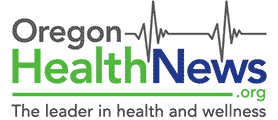U.S. officials said Medicare and Medicaid recipients and veterans will continue to receive health-care benefits, despite the federal government shutdown.

The shutdown won’t effect health insurance exchanges in spite of the conflict resulting in a stalemate on Capitol Hill between Republicans and Democrats.
Although medicare and Medicaid will keep running despite the Government shut-down, other programs such as food and drug inspections could be affected.
The U.S. Department of Health and Human Services (HHS) expected to furlough 52 percent of its staff in the shutdown, sending home approximately 40,500 employees, according to a contingency plan released by the agency. An estimated 38,000 staffers will remain on the job for the short term.
“In the short term, the Medicare Program will continue largely without disruption during a lapse in appropriations,” the contingency plan said, adding that money already has been set aside to continue funding to states for Medicaid services and the Children’s Health Insurance Program.
The shutdown also won’t affect any medical programs provided by the U.S. Department of Veterans Affairs, officials added.
“All VA medical facilities and clinics will remain fully operational,” the agency said in a shutdown guide sent to its field offices. “The Veterans Health Administration has received an advance appropriation to continue its services without disruption.”
For many, there is disappointment the shutdown won’t halt the roll out of the health exchanges, or marketplaces, a cornerstone of the health-care law. The program that many Republicans are intent on defunding — in exchange for keeping the government operating — will proceed even as other services falter.
“Many of the core parts of the health-care law are funded through mandatory appropriations and wouldn’t be affected,” HHS official Gary Cohen told the Associated Press. Cohen is director of the Centers for Medicare and Medicaid Services’ Center for Consumer Information and Insurance Oversight.
President Barack Obama has echoed those remarks.
“On Tuesday, about 40 million more Americans will be able to finally buy quality, affordable health care, just like anybody else,” Obama said. He added that the new health insurance marketplace will be open for business on Tuesday no matter what — even if there’s a government shutdown. That’s a done deal.”
People will be able to go to their state health exchange online or over the phone and begin registering for 2014 coverage, even if they live in one of the 34 states in which the federal government either wholly or partially operates the health insurance exchange.
The Centers for Medicaid and Medicare Services (CMS) will continue coordination between Medicaid and state marketplaces, guiding eligible people with low incomes into the program. CMS said it will also continue to perform such health-care industry assessments as insurance rate reviews, which are mandated by the Affordable Care Act.
But, a number of important government-run health-care functions will be disrupted during the shutdown, the HHS contingency plan said. Some of these include:
- The seasonal influenza program operated by the Centers for Disease Control and Prevention, which tracks flu outbreaks across state lines using genetic and molecular analysis. The CDC also will be hampered in its efforts to monitor and combat other infectious diseases, such as tuberculosis, hepatitis and sexually transmitted diseases.
- Routine inspections of food and drug manufacturers and monitoring of imports by the Food and Drug Administration.
- Senior nutrition and elder abuse programs operated by the Administration for Community Living.
- Admission of new patients at the National Institutes of Health’s Clinical Center.
- Action on any grants related to medical research, improvement of the health-care system, and monitoring of substance abuse programs.
- Funding for activities related to medical countermeasures against chemical, biological, radiological, nuclear and emerging threats.
October 2, 2013
